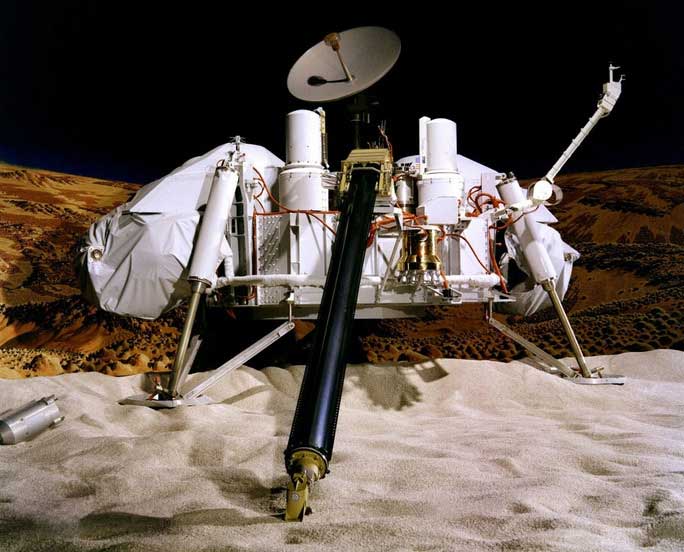A renowned astrobiologist has raised concerns that the pair of spacecraft that landed on Mars nearly half a century ago may have inadvertently destroyed the search for extraterrestrial life forever.
This shocking claim comes from astrobiologist Drik Schulze-Makuch of the Technical University of Berlin (Germany). In an article published on Big Think, he argues that the blame lies with the Viking 1 and 2 landers that touched down on Mars in 1976.

NASA’s Viking Lander – (Photo: NASA).
The Viking landers have long been regarded as the “heroes” of Mars exploration.
The duo consisted of twin spacecraft, each including an orbiter and a lander. Viking 1 launched from Earth in August 1975, entered Mars’ orbit on June 19, 1976, and successfully landed on July 20, 1976, on the western flank of Chryse Planitia (the Plains of Gold).
Viking 2 followed a few months later, entering Mars’ orbit on August 7, 1976, and successfully landing on September 3, 1976, in Utopia Planitia, the same location where China’s Zhurong rover arrived in 2021.
The Viking pair were the first NASA spacecraft, as well as humanity’s first, to successfully explore another planet.
Both landers utilized gas chromatography to search for organic compounds or carbon-containing materials in Martian soil, tested metabolic processes by adding trace radioactive nutrients to the soil, and examined the carbon-fixing abilities of potential organisms…
However, the results NASA received were perplexing and left scientists baffled. They indicated support for the hypothesis that Mars had life, but were not conclusively clear.
In two experiments, slight changes in the concentration of certain gases suggested metabolic activity was occurring.
Dr. Schulze-Makuch believes that most of these “primitive” experiments were skewed due to excessive water usage. At that time, and until recently, it was thought that only areas rich in water could support life.
In recent years, however, a myriad of bizarre species, including microorganisms that can survive for decades without a drop of water in Chile’s Atacama Desert, have shown that Earth also harbors life forms that are not heavily dependent on water.
Moreover, the “brutal” interference of these experiments half a century ago may have inadvertently caused any existing life in those areas to be killed off. This remains a significant concern for many scientists today, as theoretically, any foreign entity from another planet could carry invisible “killers” to local immune systems, leading to mass fatalities.
Nonetheless, this opens up new hope: Life may exist on Mars. We could still discover it in other areas of the planet.


















































